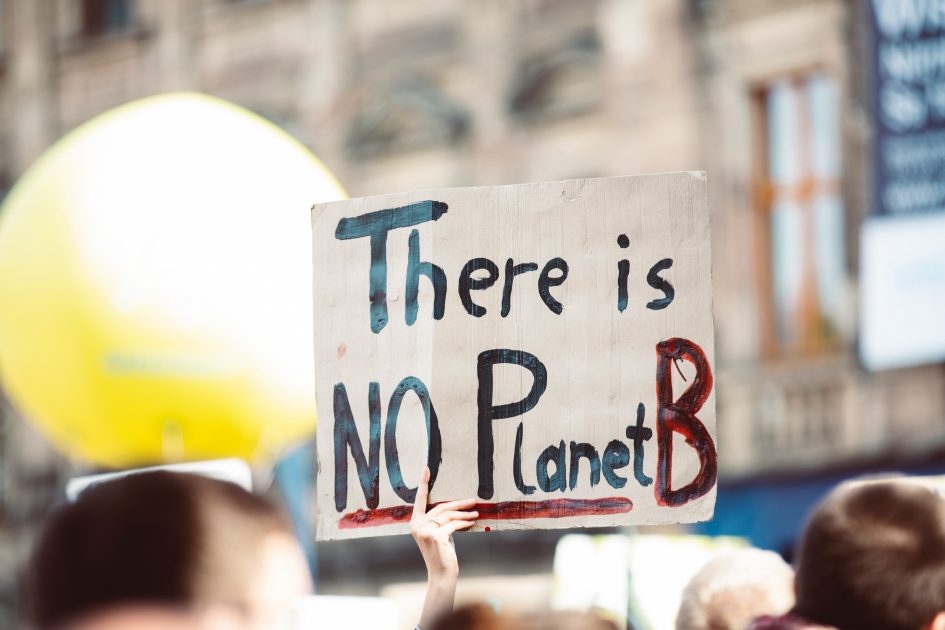Online Learning and the Environment
The COVID-19 pandemic forced approximately 85% of students to shift to online learning (Selwyn, 2021). Although it is acknowledged that online learning has positive influences on the environment, it also comes with many negative factors that must be addressed. My speculative futures essay will focus on the negative impacts online learning has on the environment and the future we should strive for in the year 2030 and beyond.
The shift to online learning has allowed schools to reduce their carbon footprint. The decrease in students travelling to class and the fact that schools use less energy to accommodate these students, leads to the reduction of emissions (Selwyn, 2021). However, there are negative factors that have a significant impact on the environment. For instance, digital tools, batteries, and supporting infrastructures that are made of a variety of different metals are relied on in education technology. The materials used to create these tools are non-renewable and add to our growing issues regarding electronic waste (e-waste), resulting in pollution and toxic waste.
It is essential to recognize that the fight against climate change requires significant coordination of institutional, technological, and behavioural changes at the global, national, local, and even household level (Hite & Seitz, 2016). Large technology manufacturers are creating updated technologies year after year and consumers are opting in for these new products, whether it’s the newest phone, tablet, or laptop. These new technologies must be sustainable in order to reduce the amount of waste being dumped. There is an increasing pressure on technology manufacturers to create “greener electronics” to assist in the movement to sustainable technology (Yashvantini, 2019). In addition, reducing energy consumption and carbon emissions across the whole manufacturing process, from the procurement of raw materials to the delivery to retail locations, is another crucial aspect of the development of green electronics. Overall, my hope is to spotlight the concerns that online learning has on the environment and how we can collectively strive to address these issues.
References
Hite, K. A., & Seitz, J. L. (2016). Global issues: An introduction. (5th ed.). John Wiley & Sons. https://ebookcentral.proquest.com/lib/royalroads-ebooks/reader.action?docID=7104342
Selwyn, N. (2021). Ed-Tech Within Limits: Anticipating educational technology in times of environmental crisis. E-Learning and Digital Media, 18(5), 496-510. https://doi.org/10.1177/20427530211022951
Sivaram, V. (2022). Climate Change. MIT Technology Review, 125(4), 76-77. https://web.p.ebscohost.com/ehost/pdfviewer/pdfviewer?vid=1&sid=a731df59-9410-41b8-998b-f787809d8ead%40redis
Yashvantini, M. (2019). Green electronics: Fostering eco-technovation. Proceedings of 10th International Conference on Digital Strategies for Organizational Success. http://dx.doi.org/10.2139/ssrn.3315165

October 17, 2022 at 6:23 am
Hi Giulia,
I am glad you are exploring this issue, as am I. I am curious about your experience as you dive into this topic more. I am feeling quite sad and anxious over what I am reading – and conflicted and guilty as a digital consumer. It feels heavy. I am also left wondering what I will do with this information and how I can somehow make a difference moving forward, both personally and professionally.
I explored this topic with Shazia in 521 in our joint blog post and I remember feeling troubled then. This is why I have chosen this topic again as I want to learn more and keep it top of mind as I move through this program and my career.
Thanks for sharing your initial insight. You’ve done a great job introducing this topic 🙂
Leah
October 19, 2022 at 4:55 pm
Thank you, Leah! I agree that this is a very heavy topic. I have been thinking about how I use technology and the number of times I’ve upgraded my phone and laptop. I hope that the future sees greener technology!
October 17, 2022 at 8:49 am
Great topic Guile. Will you be exploring solutions such as sharing technologies among many students, or reducing the pressure to have the latest and greatest tech year in and out in the classroom?
Your blog post was a great read and your topic is a very important one as we hopefully move to a more sustainable ed tech future.
October 19, 2022 at 5:01 pm
Thanks for the comment Michael! This is such a big topic and there are definitely many directions I can go. I am hoping the future of edtech sees greener technology manufactured! I believe change needs to happen at a much higher level but of course institutions also have to contribute to this change. It will be difficult to focus on one area and keep it to 1000 words!
October 19, 2022 at 3:31 pm
Hello Giulia,
I agree with Leah and Michael – this is an essential yet heavy topic.
The topics may be challenging to write about in just a few pages. You mention several issues in your post; reducing travel, waste, pollution, toxicity, consumption, natural resources, carbon emissions, coordination and behavioural changes. What is the purpose of your writing? Whom would you like to persuade to inform?
October 19, 2022 at 5:23 pm
Hi Jessica,
Thank you for your comment! There are certainly many issues that need to be addressed. I decided to focus on online learning’s negative impact on the environment, specifically e-waste. Change needs to start at the top with the manufacturers creating greener electronics to reduce that e-waste. I see this change coming in the near future based on some of the literature I am reading!